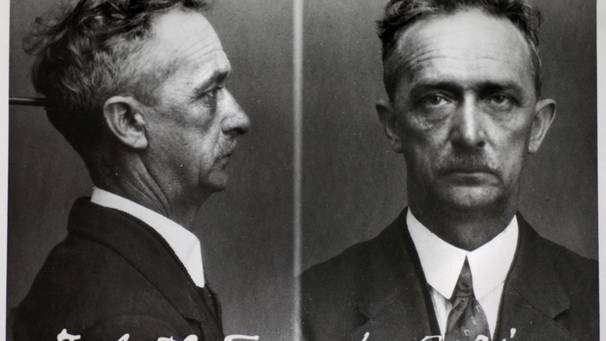Chicago in the 1920s was famous worldwide as a mecca for criminals and organised crime. Big city crime, however, was not just confined to the USA.
Most major European cities had their fair share of criminal elements during this period. Amongst the fraudsters, gangsters and other criminals operating inside Danish borders, the most infamous was arguably Thorvald Framlev – better known as the ‘Mystery Driller’.
After his first robbery in 1916, Framlev spent the next 15 years committing more than 50 high-profile heists in the Copenhagen area. The raids were estimated to have netted at least 160,000 kroner in cash – a huge sum at a time when the average weekly wage was a mere 35 kroner per week.
One-man ‘Olsen Banden’
Framlev’s was one of the most famous cases to be tried at Copenhagen High Court in the 1930s. Framlev was a safecracker who had managed to elude police in a career stretching over 15 years, eventually earning infamy – and a degree of admiration – from city dwellers.
The Driller’s typical method of attack was to break into an office building, before using one of a selection of drills to bore expertly into the lock of the safe. The Mystery Driller chose his targets carefully, always selecting premises at a time when he knew there would be a lot of cash in the building.
Although his career started off on a small scale, his fame spread as even the most sophisticated strong boxes gave way under the ministrations of the drills and other precision tools he used. As the Driller’s exploits became more and more daring, speculation over where he would strike next excited patrons in the city’s bars and cafés.
Hard to crack
Press speculation as to the identity of the Driller became rife, but despite police arresting several suspects, their suspicions were to prove incorrect on every occasion. The real perpetrator remained dazzlingly elusive.
After keeping one step ahead of his pursuers for the best part of a generation, the elusive Driller was finally apprehended on 30 April 1931. It was his over-confidence that led to his downfall. Police were keeping track of the amount of time between each raid.
After comparing this with the amounts taken, they worked out that the mystery driller had a weekly budget of around 800 kroner. After working out the time-scale compared with the amount of cash stolen in the last raid, they were able to work out approximately when their man would strike next.
Noting that the robber had been concentrating mainly on public buildings and post offices, police made a list of places they thought most likely to be hit, and then they staked them out at the time they expected the Driller to strike.
Busted in Vesterbro
After months without a result, their luck finally changed. Just after midnight, officers on a stakeout at Rahbeks Alle Post Office hear noises coming from the window. Seconds later, a figure had entered the building and was making his way towards the safe when the officers pounced.
When police tried to apprehend the man he pulled out a gun and fired two shots. The bullets missed and the infamous Mystery Driller was soon overpowered and in police custody at last.
The arrest made headline news all over the country. Despite the more lurid newspaper descriptions of a desperate criminal, city dwellers were surprised to find that the hardened safecracker turned out to be none other than a mild-mannered grocer.
Framlev’s shop at Vesterbrogade 90 became the subject of much attention as crowds flocked to see the place where the infamous safecracker had stashed his ill-gotten gains. Many regular customers could not believe that the meek, well-mannered shopkeeper who sold them their vegetables was the infamous Mystery Driller.
Framlev’s arrest became the city’s main topic of conversation – on the trams, in the bars and on the streets, city dwellers were talking about the grocer’s arrest. The man had become something of a folk hero in the eyes of many, and it was said that at least half of those asked were sorry he had been caught.
A gut instinct
At his trial, the story Framlev gave was a sympathetic one. He had been struck down with a painful stomach illness when he was young, and it was this that led to him turning to a life of crime. He was working as a blacksmith before his illness caused him to take too many days off work, eventually costing him his job.
With no money to feed his family, the young Framlev turned in desperation to robbery. The first raid he committed went so well that he decided to do another. It seemed that Framlev was well suited to his new occupation, and from these first small-time raids he went on to become one of the most skilled safecrackers the country has ever known. His grocers’ business was bought with the proceeds of the raids, giving him an air of credibility as well as an easy way of laundering the cash.
The conclusion of the story, however, is not a happy one. Framlev did not have a strong constitution and when the sentence – eight years’ hard labour – was given, it turned out to be a life sentence.
The infamous Mystery Driller was to perish in jail just two years into his prison term, finally succumbing to the same stomach illness that led to him embarking upon his life of crime.















